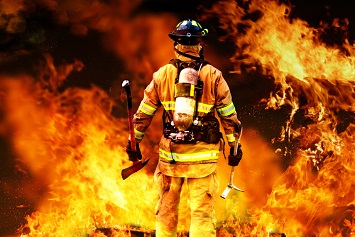When a group of firefighters got more sleep, feeling rested wasn’t the only benefit. They also reduced their risk of injury and disability. Learn more about this important link.
 |
Extended shifts and long work weeks make sleep deficiency and circadian rhythm problems common among firefighters. The long hours have been shown to increase the risk of burnout, injuries, and errors. Many firefighters suffer from undiagnosed sleep disorders, which can affect safety and long-term health as well.
Researchers at Brigham and Women’s Hospital in Boston developed a Sleep Health Program and introduced it at a fire station. The program included sleep education and screening for sleep disorders. After a year, there was a 50 percent reduction in long-term disability days among those who had participated.
The findings were published in the journal SLEEP. Study author Steven W. Lockley noted, “Our program was shown to help reduce injuries and days off due to disability and should be considered for implementation by fire departments nationwide.”
Lockley and his colleagues emphasize the connection between untreated sleep disorders and a high risk of cardiovascular disease, drowsy-driving crashes, and other risks.
Maybe it’s time to look at the impact of insufficient sleep on your employees’ safety and health.
